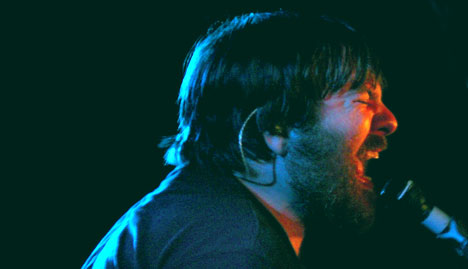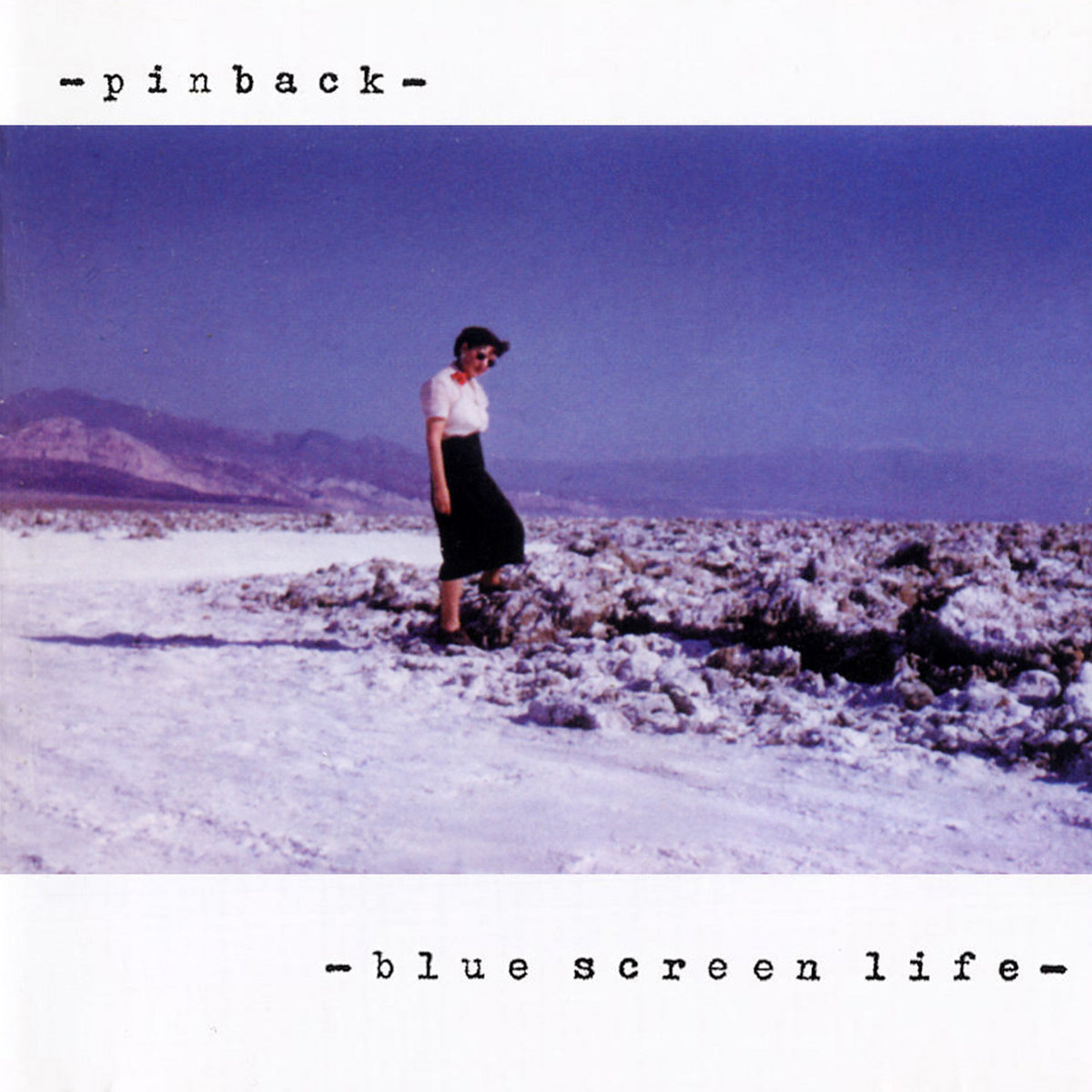

I feel like it’s some sort of destiny that right at the same time when I start getting into HTML, CSS and making my web 1.0 homepage, I start listening to Pinback’s discography again. Pinback, like so many other indie rock bands in those days, appeared on my radar thanks to The O.C. As a teenager who had been listening to pop and some mainstream rock and hip-hop acts up until then, the soundtrack of the O.C. opened up a whole new world for me. I didn’t even know what ‘indie’ meant at the time, but I really digged bands like Death Cab For Cutie, The Killers, Modest Mouse, The 88, Rogue Wave, South and Eels. Pinback was featured on the O.C. several times during their second season most notably with the song Fortress, which also appeared on the fourth installment of the “Music from the O.C.” compilation. Fortress is such a banger of a track, it immediately caught my ears.
Fortress is the middle track on 2004’s “Summer in Abbadon”. It was Pinback’s third full-length release and arguably their most inspired, consistently high quality album. Pinback started being a thing in the mid to late nineties when members Rob Crow and Zach Smith started collaborating. Pinback’s musical development can not be seen separately from the introduction of the internet and personal computers. Zach Smith said this about it in an interview with the Santa Barbara Independentin 2014:
“We were right there at the edge, when you could first start recording with computers. It was really foreign to us, but it was a lot of fun because it gave us all this power. It was like, “Wow, you mean I don’t have to go to L.A. and pay $3,000 for a studio? I can just hook up my crappy PC?” I mean, yeah, it sounded crappy, but if the song was good then it’s still pretty cool. …”

The rise of these new technologies enabled people to start recording their music in their bedrooms and Pinback seem to have been among the first to adopt this. Listening to their discography it is pretty hard not to see them for the passive computer geeks that they are. Rob Crow is actually a pretty hardcore gamer (at least he was back in 2012.) Song titles like Offline P.K and AFK are pretty straightforward references to internet and gaming culture in the early 2000’s, but upon taking a closer look at the bands lyrics you find more references and themes that reveal how the band thought about the rise of the digital age.
Take Non-Photo Blue, the opening track of “Summer in Abbadon”. While Rob and Zach like to emphasize that their songs usually have multiple different meanings, Non-Photo Blue seems to be about a couple, or former couple, avoiding to face their feelings by doing time-wasting activities such as posting messages on empty forums among other things. Offline P.K., from the 2001 album “Blue Screen Life”, seems to be more of a general song about life as a fanatic computer user. The song AFK is the closer from Summer In Abbadon and one of their heavier tracks. The song feels to me like someone is trying to break loose from the same distractions and their avoidant lifestyle by going ‘AFK’, and being true to their feelings (missing someone).

Pinback is one of the first and few bands I know that really address internet culture in their songs. They do it in a subtle, mature way. Sometimes addressing their online lifestyles in a passionate way, but at other times being critical of the consequences of the blue screen life they are living. It’s been close to 20 years since Summer in Abbadon was released and in the meantime internet culture is no longer a niche thing. Lot’s of people, especially millennials and gen Z, are living blue screen lifestyles. The feelings of isolation, the endless opportunities to procrastinate on the internet, are now common talking points. Pinback were really ahead of their time to adress these issues in their songs.
Pinback released two more records after Abbadon, but in my opinion they never came close to the vibe of their 2004 record. Autumn of the Seraphs has a very strong first half, but loses urgency a bit after “Walters”. 2012’s “Ïnformation Retrieved” had a pretty inconsistent recording process, which may explain why the album feels less like a coherent work than the previous releases. I do have to give some credit to the opener ”Proceed to Memory” (yet another computer reference) which together with album closer “Sediment” is among their best work.

The cover of Blue Screen Life (2001) is probably my favorite. You can find, listen and purchase their full discography here
What made Pinback stand out to me back when I first discovered them as a teen was their ability to capture how I felt living back then. I too was a dude who spent too much time sitting in his room playing videogames, browsing forums on the internet. It was lonely at times, but it was often the path of least resistance. Pinback’s music and lyrics were, if anything, an affirmation of my existence. This is somewhat of an exaggeration because I did have an offline life back then. I went to school, had real life friends and did sports, but online is where I felt most at ease. That feeling of ease probably comes from the lack of confrontation you get online. Any person, group, opinion or idea you dislike can be avoided doing fruitless activities such as posting on empty boards. Now that I’m older I understand this (or do I, because here I am writing an entire article on an inactive band on a personal website) and I live a larger percentage of my life offline. Still Pinback’s music will always have a place in my music library. I tend to come back to it when I’m feeling nostalgic or when I need some affirmation of my existence in this world.